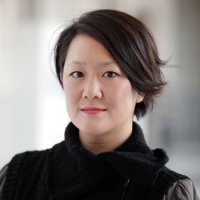New Developments in Inter-Korean relations
On March 4, 2021, the Wilson Center’s Jean H. Lee joined Stephen Noerper, senior director at The Korea Society, for a wide-ranging discussion about what's happening on the Korean Peninsula, particularly with North Korea and inter-Korean relations. The full webcast can be viewed here.
This event was organized by The Korea Society. Columbia University's Center for Korean Research was a promotional partner for this program.
Jean H. Lee Quotes
"I don’t think I’ve seen North Korea as isolated as it is today. It’s been more than a year since North Korea sealed its borders, and I think for us that means things are really quiet. I can assure you that the desperation is only deepening on the ground. I think we should be mindful of the consequences of that isolation and that continued deprivation."
"These [referring to shortages in North Korea] are things we’re not seeing as more and more of the foreigners in this small community I was a part of leave. That concerns me because it means we have less insight into what’s happening on the ground. Foreign journalists unfortunately haven’t been here for more than a year... I do know that once you leave, it is very hard to get control and get back into the country again."
"When it comes to thinking about humanitarian aid, the challenge for South Korea and for the neighboring nations in the region is really - I think it has to be - how do we bring North Korea out of this isolation? How do we bring them into the international fold? But not only that, how do we encourage North Korea to act as a responsible international member? How do we encourage them to abide by the principles that they agree to when they join the United Nations?"
"North Korea, when it comes down to it, relies on very illicit means as a way to get what it needs, and I think they will do that more and more as it becomes harder for them to follow international rules. It has to be part of the larger goal for South Korea as well as for the neighbors in the region and the United States [to be] identifying what those common interests are, and that includes China and Russia. For all of the neighbors to come together and really identify with what their longer term strategy is going to be really important."
"I think that Kim Jong Un is waiting to see what his options are, but meanwhile I think he’s actively looking for ways to reduce his dependence on other countries. I think that the shelves are pretty bare because they can’t get the materials in that they need. They’re really actively trying to find ways to make their own products so that they don’t have to import them. I also suspect that they are turning to ways to make money that we just can’t see and that don’t rely on the border shutdowns, and that’s cyber."






